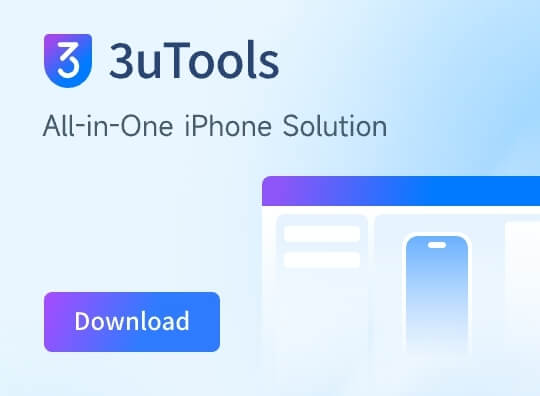How to Back Up Your iPhone Before Installing iOS 10.3?
07/13/2018
9200
Apple's iOS 10.3 is probably coming by the end of March, bringing with it a batch of updates and new features.
Before you upgrade, however, it's a good idea to make sure you've got a full backup of your iPhone, just in case something goes wrong. The 10.3 update includes the conversion of your iPhones current file system to a new one.
There are 3 ways to go about this: Back up your iDevice to your PC (via 3uTools), back up your iPhone via iTunes, back it up to the cloud via iCloud. For what it's worth, I strongly recommend the PC-backup option, mostly because I feel it's a faster and more complete solution.
Back up your iDevice using 3uTools
Do you want to back up your iDevice quickly? You can install 3uTools on your PC first, connect your iPhone to your PC, and then find "Toolbox"-"Backup/Restore".
There are 2 little different methods for you:
1. Backup iDevice --Users could back up almost all the data & files in your iDevice;
2. Customize Back up-- Users can separately backup photos, music, contacts, notes, and apps.
The next step you need to click "Back up iDevice" or "Customized Backup", and 3uTools helps you do the rest things, please wait till the backup process is completed.


Back up to iTunes
Step 1: Connect your iPhone to your computer via USB sync cable.
Step 2: Depending on your previous setup, this may launch iTunes and start the sync process, which includes making a backup. However, if your iPhone isn't set to auto-sync, continue on to Step 3.
Step 3: If you see a Trust This Computer message, go ahead and agree to it. In iTunes, click the phone icon (near the upper-left corner) to bring up the Summary screen for your iPhone. Then, in the Backups section, click the Back Up Now button. Depending on how long it's been since your last backup, this might take 30 seconds or a decent chunk of time. Either way, that's it, you're done.

You may want to consider enabling encryption for this backup, which will carry over iOS "keychain" info (passwords for email accounts, Wi-Fi networks and various apps and websites) as well as any Health or HomeKit data you may have -- very handy should you need to restore your iPhone. Just tick the box next to Encrypt iPhone backup before hitting step 3.
Back up to iCloud
Step 1: Make sure your iPhone is connected to a Wi-Fi network.
Step 2: Tap the Settings icon, then tap iCloud.

Step 3: Tap Backup, then toggle iCloud Backup on (if it isn't already). Finally, tap Back Up Now. Depending on how much time has passed since your last backup, this may happen quickly, or it may take hours. Plan ahead.
Step 4: Verify that the backup finished successfully by tapping Settings > iCloud > Storage > Manage Storage, then select your iPhone. You should see the details of the backup, including time and size.
That's all there is to it! Now you can go forth and install iOS 10, with every confidence that if something gets mucked up along the way, you'll be able to restore your iPhone to its previous, working state.












